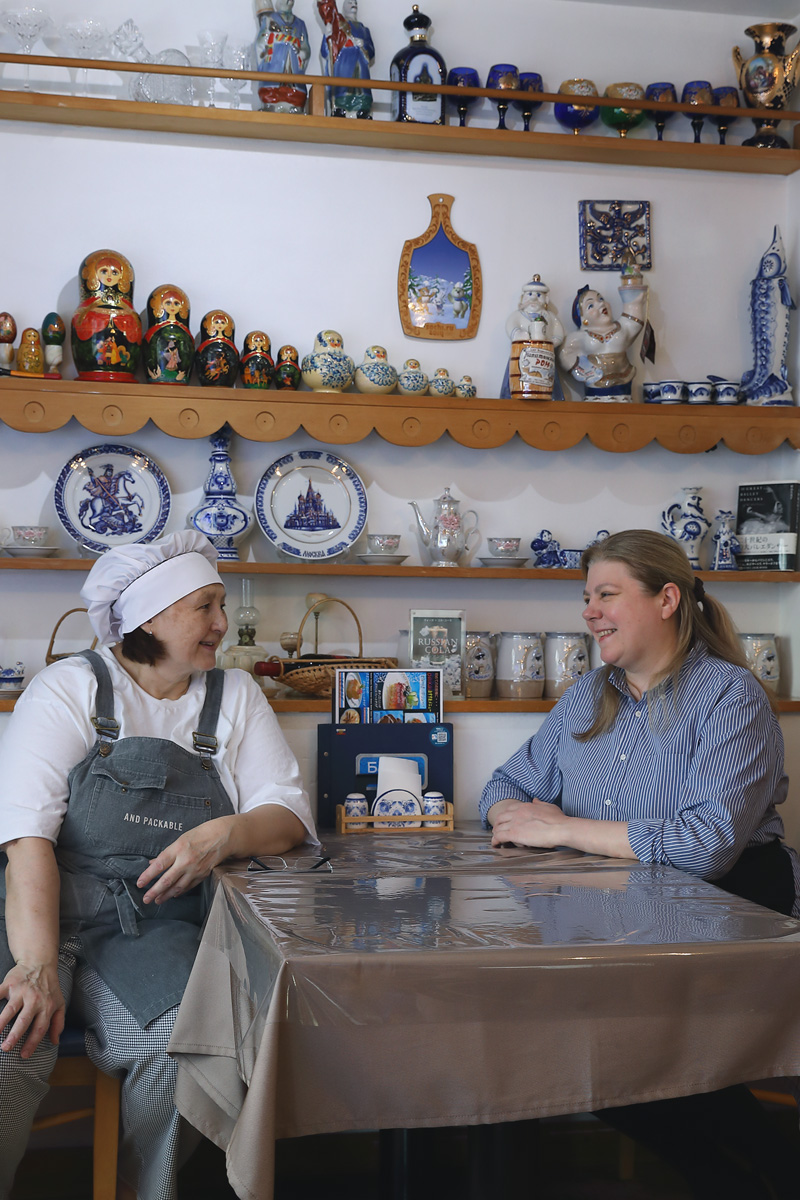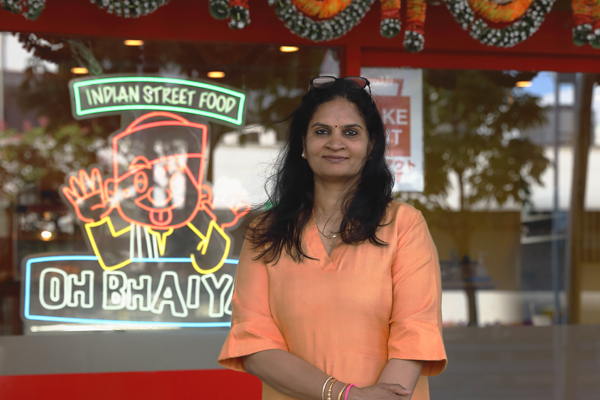世界食堂。
Feature | 2025.6.24
近所の外国人たちと友だちになりましょう、という話。
初めてのパリで、アフリカンたちで満員の
地下鉄に乗ったことがある。正直、不安だった。
肌の色が違い、言葉も通じず、みんな大きい。
でも、今ならなんとも思わない。アフリカンの友だちができ、
彼や彼女たちのことがわかったから。
今、日本に増えている在留外国人も同じ。
見た目が違っても、話をすればいい人だったりする。
友だちになれば、異国の文化を教えてもらえることもある。
そこで今号のyoffは様々な国の人が集まる食堂を特集。
食べて、飲んで、会話が弾んで、理解も深まる。
この号を読んで、身近にいる外国人と
“お喋りしようかな” と思ってもらえるとうれしいです。
An invitation to befriend our neighbors from abroad.
I once boarded a Paris subway packed with Africans. Honestly, I felt uneasy—their skin color, their language, and their size, all different from mine.
But now, I wouldn’t think twice. I’ve made African friends and come to understand them.
Japan’s growing foreign community is much the same.
People may look different, but once you talk to them, most are kind.
Friendship opens the door to new cultures.
In this issue of yoff, we highlight eateries where people from many nations gather.
Food and conversation bring us closer.
May this issue inspires you to chat with someone new—right in your own neighborhood.

今の日本で欠かせない存在になっている在留外国人。
地域によっては問題も起きているけど、いないと日常生活は稼働しない。
海を越えて日本にやって来て、せっかくご近所さんになったんだから、彼や彼女たちのことをもっと知りたい。
一人ひとりと会話を楽しみ、理解し合う。つまり友だちになる。
そんなことが、これからの日本には大切なんじゃないかな。
Foreign residents are indispensable in today’s Japan.
Without them daily life would be hard.
They’ve crossed oceans to live here—
now that they’re our neighbors, let’s get to know them.
Enjoy conversations, build understanding, in short, become friends.
That might just be what Japan needs most moving forward.
東京で生活していると外国人を目にしない日がない。インバウンドの旅行客ではなく、在留外国人。コンビニに行けば笑顔で対応してくれて、建築現場では頼もしい働きっぷりを見せている。さらに居酒屋や介護施設、IT企業をはじめとしたオフィスなど様々な場所で活躍している。
法務省のホームページでは2024年末の在留外国人は376万8,977人、前年比35万7,985人(10.5%)の増加となっている。また、ある統計では2070年には939万人まで増えて総人口の10.8%を外国人が占めるという予測がされている。出生数が下がっていることとも関係して、これからの日本はますます外国人がいないとまわらなくなる。
隣に外国人がいる生活を経験してこなかった日本人には、この現状にとまどう人も多くいて、さまざまな問題が起きている。しかし、イメージだけで怖がったり、ヘイトへと向かうのは間違っている。必要なのは、私たち日本人がもっと、在留外国人たちを知ることなんじゃないかな。
そんな考えから、海外からやって来て日本で暮らす彼や彼女たちが集まるレストランに行ってみた。どの店も日本人向けのメニューではなく、本場の味をそのまま提供する、いわゆるガチ系。
その国の料理を味わいながら、お客として同席している在留外国人たちとコミュニケーションをとる。美味しいものは気持ちを寛容にし、会話を弾ませる。お酒が入ればさらにテンションは上がる。テーブルに並べられた料理についてあれこれ教えてもらい、その国の生活や文化へと話は広がる。どうして日本に来たの?日常生活で困っていることはない?などと聞いているうちに、国のことからその人のことへと話題が移り理解が深まっていく。
向かったのはロシア、エチオピア、インド、ウイグル。店の人たちは快く取材に応じてくれた。たどたどしい日本語で、それでも店を切り盛りしている。そして各店には、今夜もお国の人たちがやってきて、美味しい食事を楽しんでいる。
In Tokyo, you see foreign residents every day. Not tourists, but people who live and work here. They greet you at convenience stores with a smile and work hard on construction sites. They are also active in izakayas, nursing homes, IT firms, and many other workplaces.
According to the Ministry of Justice, Japan had 3,768,977 foreign residents at the end of 2024—up 357,985 from the previous year, a 10.5% increase. One forecast projects this number will reach 9.39 million by 2070, making up 10.8% of the total population. With its falling birth rates, Japan will increasingly rely on foreign residents to keep society running.
Many Japanese, unfamiliar with living alongside foreigners, struggle to adjust—and tensions can arise. But fear or hatred based on stereotypes is misguided. What we really need is simply to get to know them.
With that in mind, I visited restaurants run by foreign residents living in Japan and serving foreigners. These aren’t tourist-friendly spots—they serve real, local flavors from back home.
Over these meals, I chatted with fellow diners from abroad. Good food warms hearts and gets conversations flowing. With a drink or two, the mood lifts even more. They shared the stories behind their dishes, revealing glimpses of their culture and daily life. “Why did you come to Japan?” “What’s hard about living here?” Soon, the talk shifted from their country to their personal lives—and my understanding deepened.
I visited places run by Russians, Ethiopians, Indians and Uyghurs. Each welcomed me warmly. Their Japanese may be limited, but they run their businesses with confidence. Night after night, fellow nationals gather at these places to enjoy a taste of home.




閲覧中の特集はこちら





